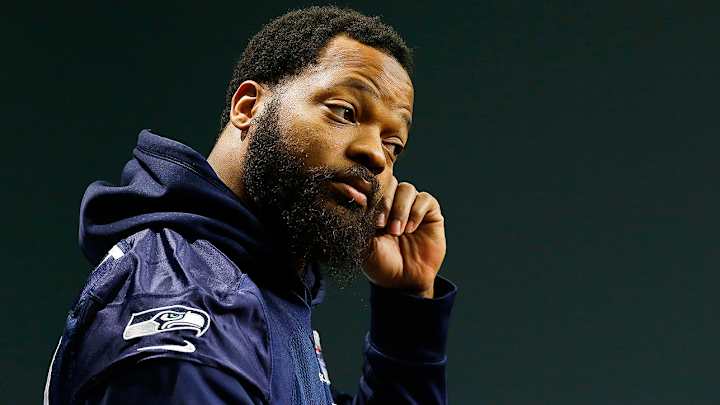Michael Bennett Says He Was 'Terrified' During Police Encounter

Seattle Seahawks defensive end Michael Bennett says he was "terrified" after an encounter last month with the Las Vegas Police and added that his explanation of the event left his young daughter in tears.
Bennett first told his encounter on social media and recounted the story with ABC News saying he was in Las Vegas to attend the Floyd Mayweather-Conor McGregor fight last month. After the fight, Bennett says he headed back to his hotel when he heard what he thought were gunshots and saw people running.
During the ensuing chaos, Bennett says he ran and jumped over a ledge when he saw police officers.
After being confronted by police, Bennett said one of the officers pointed a gun at his head and restrained him. A TMZ video later showed Bennett on the ground asking the officers why he was being profiled.
"I'm just thinking in my head, there's like, Tamir Rice, Eric Garner, all these people, these people that have been through this," Bennett said to ABC News.
A Look at the Legal Action Michael Bennett Could Take Against Las Vegas Police
"I'm terrified," he said. "I'm literally just, like, worried if I make the wrong decision ... if I move too fast, if I twitch, and somebody says I'm resisting ... because I'm a big guy, you know what I'm saying?"
The Las Vegas Police Department says that Bennett was acting suspiciously and denied any profiling.
The president of the Las Vegas Police implored the NFL to “conduct an investigation, and take appropriate action, into Michael Bennett’s obvious false allegations against our officers.”
The league declined to do so.
"I think it's un-American what happened to me, having guns drawn on me. I say it's un-American what happened to Eric Garner. It's un-American, what happened to Trayvon Martin. It's un-American that there's ... no equality for people," Bennett said. "What I'm doing is ... it's the most American thing that you could do, is fight for equality for everybody, and have a unity for the country," Bennett added.
Bennett said he had to explain what happened to him to his 10-year-old daughter.
"It was an emotional thing for me to sit there and have to sit her down and explain to her about stereotypes, and racially profiling and what it means to be ... a black man in America, and what it means for her to be a young black woman as she grows up in this country," Bennett said.
